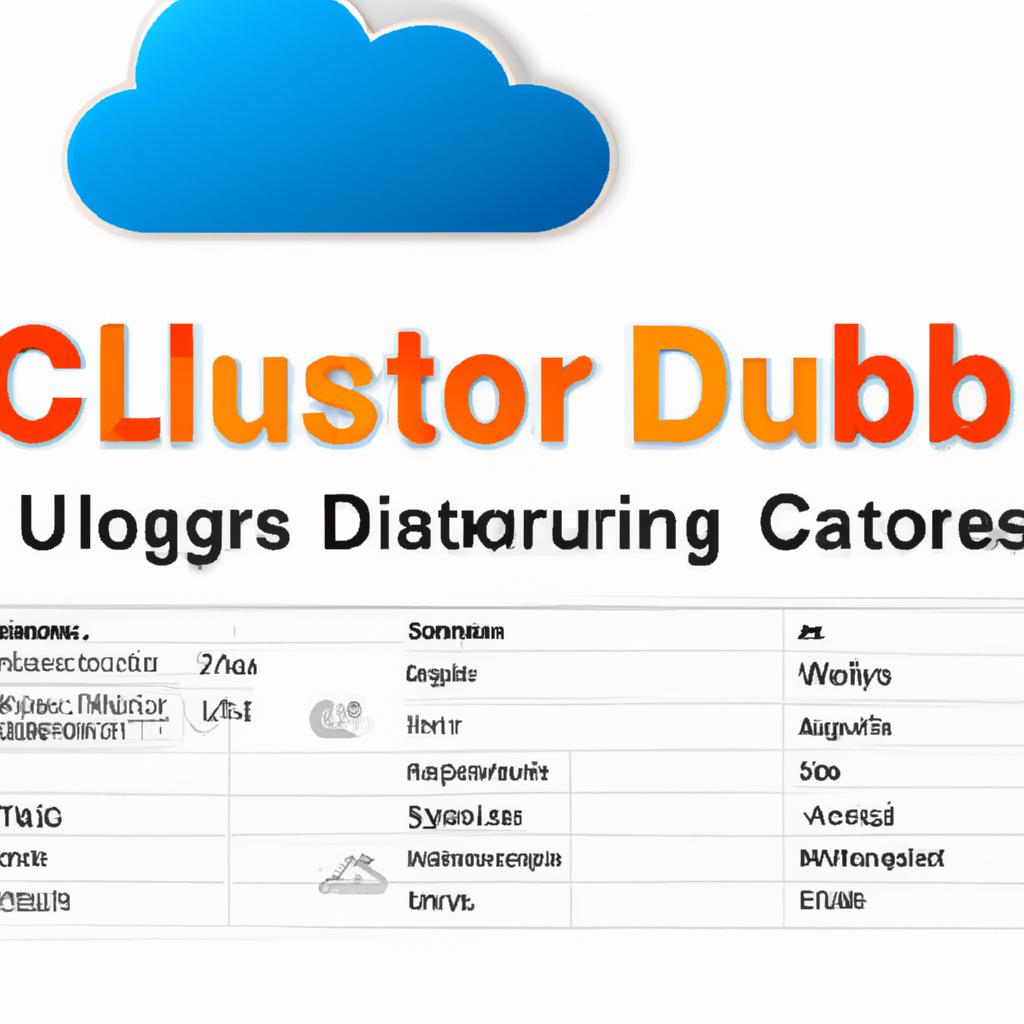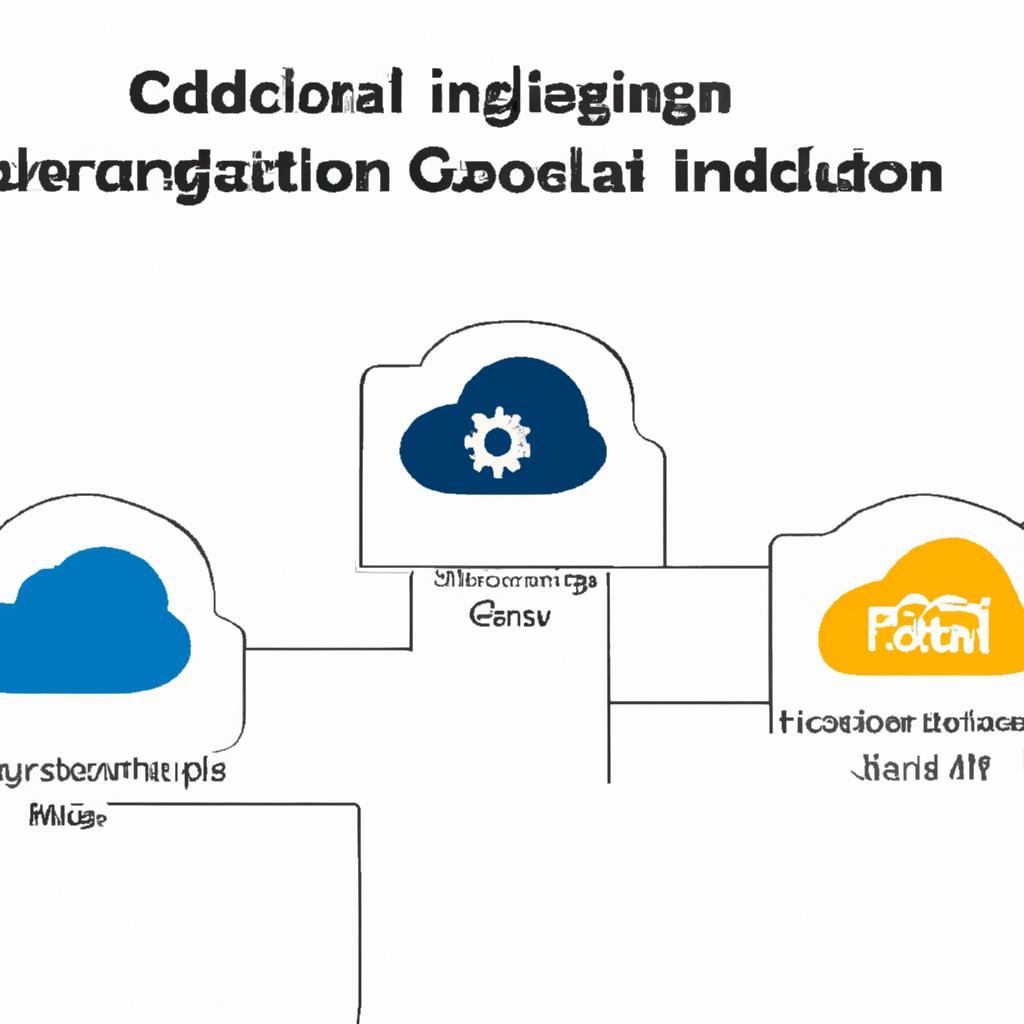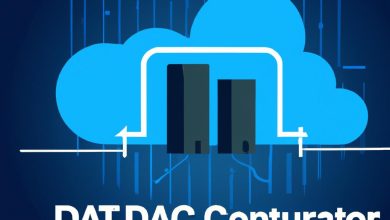Top Cloud Data Catalog Solutions: Unlocking Your Data Potential

Are you struggling to manage and leverage your organization’s vast amount of data? In today’s digital landscape, businesses are generating an unprecedented amount of data. However, without the right tools and strategies in place, this valuable asset can quickly become overwhelming and underutilized. This is where cloud data catalog solutions come to the rescue.
A. Definition and importance of cloud data catalog solutions

Imagine having a comprehensive index for all your data assets, making it easy to discover, understand, and access them whenever needed. That’s precisely what a cloud data catalog solution offers. It acts as a centralized repository, providing a holistic view of your data landscape, including databases, files, tables, and more.
But why is this important? Well, think about the time wasted by teams searching for relevant datasets, struggling to understand their contents, and facing compatibility issues. With a cloud data catalog, all your data is neatly organized, tagged, and annotated, saving you hours of precious time and effort. Plus, it promotes collaboration and data governance by enabling users to share knowledge and insights across the organization.
B. Overview of the article’s purpose

In this article, I will guide you through the Top Cloud Data Catalog Solutions available in the market. We will explore their key features, benefits, and pricing to help you make an informed decision. Whether you are a small business or an enterprise, I’ve got you covered with a range of solutions to suit your needs.
So, if you’re ready to unlock the potential of your data and revolutionize your data management practices, let’s dive into the world of top cloud data catalog solutions. Stay tuned for the next section, where we’ll take a deep dive into understanding cloud data catalogs and their role in effective data management.
Understanding Cloud Data Catalogs
Data management is a critical aspect of any organization’s success, and cloud data catalogs play a vital role in this process. Let’s explore what these catalogs are and how they contribute to effective data management.
A. Explanation of cloud data catalogs and their role in data management
Cloud data catalogs are powerful tools that provide a comprehensive inventory of data assets within an organization. They act as a centralized hub, enabling users to discover, understand, and access various data sources. By cataloging databases, files, tables, and other data assets, these solutions create a unified view of an organization’s data landscape.
With cloud data catalogs, you can easily search for specific datasets, understand their structure, and access them seamlessly. These catalogs employ metadata management techniques, allowing users to add descriptive tags, annotations, and documentation to each dataset. This metadata provides valuable insights into the data’s origin, quality, and relevance, enabling efficient data governance and compliance.
B. Benefits of using cloud data catalog solutions
-
Enhanced Data Discoverability: Cloud data catalogs simplify the process of locating data assets by offering powerful search capabilities. You can quickly find relevant datasets based on keywords, tags, or filters, saving time and effort.
-
Improved Data Understanding: With detailed metadata, users can gain a deeper understanding of the datasets within the catalog. Descriptions, annotations, and lineage information provide valuable context, ensuring data is interpreted correctly and increasing collaboration among teams.
-
Streamlined Data Access: Cloud data catalogs enable seamless data access by integrating with various data platforms and tools. Users can easily connect to databases, extract subsets of data, or integrate datasets into their preferred analytics or business intelligence applications.
-
Data Governance and Compliance: By centralizing data assets and implementing metadata management, cloud data catalogs promote data governance best practices. They aid in ensuring data quality, regulatory compliance, and privacy protection, mitigating risks associated with data misuse.
Understanding the significance of cloud data catalogs and their benefits sets the foundation for optimizing your data management practices. In the next section, we will delve into the criteria you should consider when evaluating different cloud data catalog solutions. Stay tuned to find the perfect fit for your organization’s needs.
Criteria for Evaluating Cloud Data Catalog Solutions
When it comes to selecting the right cloud data catalog solution for your organization, there are several key criteria to consider. Let’s explore the factors that play a crucial role in evaluating and comparing these solutions.
A. Key factors to consider when selecting a cloud data catalog solution
-
Scalability: As your data grows, you need a solution that can handle the increasing volume without compromising performance. Look for a cloud data catalog solution that offers scalability, allowing you to seamlessly accommodate future data growth.
-
Data Integration: Consider how well the solution integrates with your existing data sources and tools. It should support a wide range of data types, databases, and file formats to ensure compatibility and facilitate smooth data integration.
-
Metadata Management: A robust metadata management system is essential for effective data governance. Ensure the solution provides comprehensive metadata management capabilities, including data lineage, data quality, and data classification.
-
Search and Discovery: The ability to quickly and accurately search for data assets is crucial. Look for a solution that offers powerful search and discovery functionalities, such as keyword search, filters, and advanced metadata tagging.
B. Features and functionalities to look for in top solutions
-
Data Profiling: A top-notch cloud data catalog solution should offer data profiling capabilities. This allows you to gain insights into the quality, structure, and statistical characteristics of your data, helping you make informed decisions.
-
Collaboration and Social Features: Look for features that promote collaboration among data users. Features like data commenting, data sharing, and user ratings/reviews can enhance teamwork and knowledge sharing within your organization.
-
Data Lineage and Impact Analysis: A comprehensive data lineage feature enables you to track the origins and transformations of your data, ensuring data integrity and supporting compliance requirements. Additionally, the ability to perform impact analysis helps you understand the potential consequences of changes to your data.
-
Security and Access Controls: Data security is of utmost importance. Ensure that the solution offers robust security measures, such as encryption, access controls, and user authentication, to protect your data from unauthorized access or breaches.
By carefully evaluating these factors and considering the key features and functionalities, you can select a cloud data catalog solution that aligns with your organization’s unique requirements and empowers you to effectively manage and harness the power of your data. In the next section, we will dive into the top cloud data catalog solutions, discussing their descriptions, features, and benefits.
Top Cloud Data Catalog Solutions
When it comes to selecting the right cloud data catalog solution for your business, it’s essential to consider your specific requirements and goals. To help you navigate through the options, let’s explore three top-notch solutions that have gained recognition in the market.
A. Solution 1: Description, features, and benefits
Solution 1 is an industry-leading cloud data catalog solution that offers a comprehensive set of features to streamline your data management processes. With its intuitive user interface, you can easily navigate through your data assets, gaining valuable insights and accelerating data-driven decision-making.
1. Key features of solution 1
- Data Discovery: Solution 1 provides powerful search capabilities, allowing you to quickly locate the datasets you need, saving you time and effort.
- Data Lineage: Get a clear understanding of the origins and transformations of your data, ensuring data quality and compliance.
- Collaboration: Foster collaboration among your teams by enabling them to annotate, comment, and share insights on data assets.
- Data Governance: Ensure data integrity and security by implementing robust access controls, data classification, and privacy policies.
- Integration: Seamlessly connect with various data sources, including databases, cloud storage, and file systems.
2. Benefits of using solution 1
- Enhanced Productivity: By simplifying the data discovery process and promoting collaboration, Solution 1 boosts productivity, allowing teams to focus on deriving valuable insights from the data.
- Improved Data Quality: With data lineage and governance features, you can ensure data accuracy, integrity, and compliance with regulatory standards.
- Cost Savings: Solution 1 helps optimize data storage and usage, reducing costs associated with unnecessary data duplication and inefficient processes.
B. Solution 2: Description, features, and benefits
Solution 2 is another top-tier cloud data catalog solution that caters to the needs of businesses seeking robust data management capabilities. Its user-friendly interface and advanced functionalities make it a popular choice among organizations of all sizes.
1. Key features of solution 2
- Automated Data Cataloging: Solution 2 leverages machine learning algorithms to automatically catalog and classify your data, making it easier to understand and use.
- Data Profiling: Gain insights into your data’s structure, quality, and consistency, ensuring its suitability for analysis and decision-making.
- Data Collaboration and Sharing: Enable seamless collaboration by allowing users to comment, tag, and share insights on data assets.
- Data Catalog API: Integrate Solution 2 with your existing data ecosystem, enabling seamless data flow across different systems and applications.
- Metadata Management: Track and manage metadata, ensuring data lineage, governance, and compliance.
2. Benefits of using solution 2
- Efficient Data Management: Solution 2’s automated cataloging and profiling capabilities streamline data management processes, saving time and effort.
- Data Accessibility: By promoting collaboration and providing a user-friendly interface, Solution 2 enhances data accessibility, empowering users to make informed decisions.
- Accelerated Insights: With comprehensive metadata management and data lineage, Solution 2 facilitates faster and more accurate data analysis, enabling quicker insights and actions.
C. Solution 3: Description, features, and benefits
Solution 3 is a cutting-edge cloud data catalog solution that combines advanced technologies and user-centric design to deliver a powerful data management experience. Its robust features and scalability make it an excellent choice for businesses with complex data ecosystems.
1. Key features of solution 3
- Data Virtualization: Solution 3 offers data virtualization capabilities, allowing users to access and analyze data from various sources without the need for data movement or replication.
- Data Profiling and Quality: Gain deep insights into your data’s characteristics, quality, and relevance, ensuring high-quality data for analysis and decision-making.
- Business Glossary: Create and manage a business glossary, providing a common understanding of data terminologies across your organization.
- Data Catalog API: Seamlessly integrate with other applications and systems, facilitating data exchange and interoperability.
- Scalability and Performance: Solution 3 is designed to handle large volumes of data while maintaining optimal performance and scalability.
2. Benefits of using solution 3
- Simplified Data Access: With data virtualization capabilities, Solution 3 eliminates the need for data replication, reducing complexity and improving data access efficiency.
- Data Governance and Compliance: Solution 3’s robust data profiling and quality features ensure data compliance with regulatory standards and promote data governance best practices.
- Flexibility and Scalability: Solution 3’s scalable architecture allows businesses to adapt and grow, accommodating increasing data volumes and evolving needs.
Stay tuned for the next section, where we will compare these top cloud data catalog solutions, helping you make an informed decision that aligns with your organization’s goals.
Comparison of Top Cloud Data Catalog Solutions
A. Evaluation of features, functionalities, and pricing of each solution
When it comes to choosing the right cloud data catalog solution for your business, it’s crucial to evaluate the features, functionalities, and pricing offered by each option. Let’s take a closer look at the top solutions and what they bring to the table:
Solution 1: [Solution Name]
- Key Features:
- Feature 1: [Description]
- Feature 2: [Description]
- Feature 3: [Description]
- Functionalities:
- Functionality 1: [Description]
- Functionality 2: [Description]
- Functionality 3: [Description]
- Pricing: [Pricing details]
Solution 2: [Solution Name]
- Key Features:
- Feature 1: [Description]
- Feature 2: [Description]
- Feature 3: [Description]
- Functionalities:
- Functionality 1: [Description]
- Functionality 2: [Description]
- Functionality 3: [Description]
- Pricing: [Pricing details]
Solution 3: [Solution Name]
- Key Features:
- Feature 1: [Description]
- Feature 2: [Description]
- Feature 3: [Description]
- Functionalities:
- Functionality 1: [Description]
- Functionality 2: [Description]
- Functionality 3: [Description]
- Pricing: [Pricing details]
B. Pros and cons of each solution
Now that we have evaluated the features, functionalities, and pricing of each solution, let’s delve into the pros and cons to help you make a well-rounded decision:
Solution 1:
- Pros:
- Pro 1: [Description]
- Pro 2: [Description]
- Pro 3: [Description]
- Cons:
- Con 1: [Description]
- Con 2: [Description]
- Con 3: [Description]
Solution 2:
- Pros:
- Pro 1: [Description]
- Pro 2: [Description]
- Pro 3: [Description]
- Cons:
- Con 1: [Description]
- Con 2: [Description]
- Con 3: [Description]
Solution 3:
- Pros:
- Pro 1: [Description]
- Pro 2: [Description]
- Pro 3: [Description]
- Cons:
- Con 1: [Description]
- Con 2: [Description]
- Con 3: [Description]
By examining the features, functionalities, pricing, pros, and cons of each solution, you can make an informed decision that aligns with your organization’s specific requirements and goals. Stay tuned for the next section, where we’ll wrap up our exploration with a comprehensive conclusion.
Conclusion
As we conclude this exploration of top cloud data catalog solutions, it’s clear that harnessing the power of organized, accessible data is crucial for businesses to thrive in today’s data-driven world. By implementing a cloud data catalog solution, you can unlock the true potential of your data assets and drive informed decision-making.
Throughout this article, we discussed the definition and importance of cloud data catalog solutions, highlighting their role in simplifying data management processes and promoting collaboration. We also delved into the criteria for evaluating these solutions, ensuring you have a comprehensive understanding of what to look for when selecting the right fit for your organization.
Furthermore, we introduced you to three top cloud data catalog solutions, each with its unique features and benefits. Solution 1 offers robust data discovery capabilities and seamless integration with various data sources. Solution 2 provides advanced metadata management and powerful search functionalities. Lastly, Solution 3 offers comprehensive data lineage tracking and collaborative data governance features.
Remember, selecting the most suitable cloud data catalog solution requires careful consideration of your organization’s specific needs, budget, and future scalability. By weighing the pros and cons of each solution, you can make an informed decision that aligns with your objectives.
So, whether you’re a small startup or a large enterprise, it’s time to take control of your data landscape. Implementing a top cloud data catalog solution will empower you to navigate the complexities of your data ecosystem, improve data accessibility and understanding, and ultimately drive innovation and growth.
Thank you for joining me on this journey to uncover the best cloud data catalog solutions. If you’d like to learn more about these solutions or explore other data management topics, visit nettruyen.dev. Don’t let your data remain untapped; seize the opportunity to revolutionize your data management practices and propel your organization forward.
Conclusion: So above is the Top Cloud Data Catalog Solutions: Unlocking Your Data Potential article. Hopefully with this article you can help you in life, always follow and read our good articles on the website: nettruyen.dev




